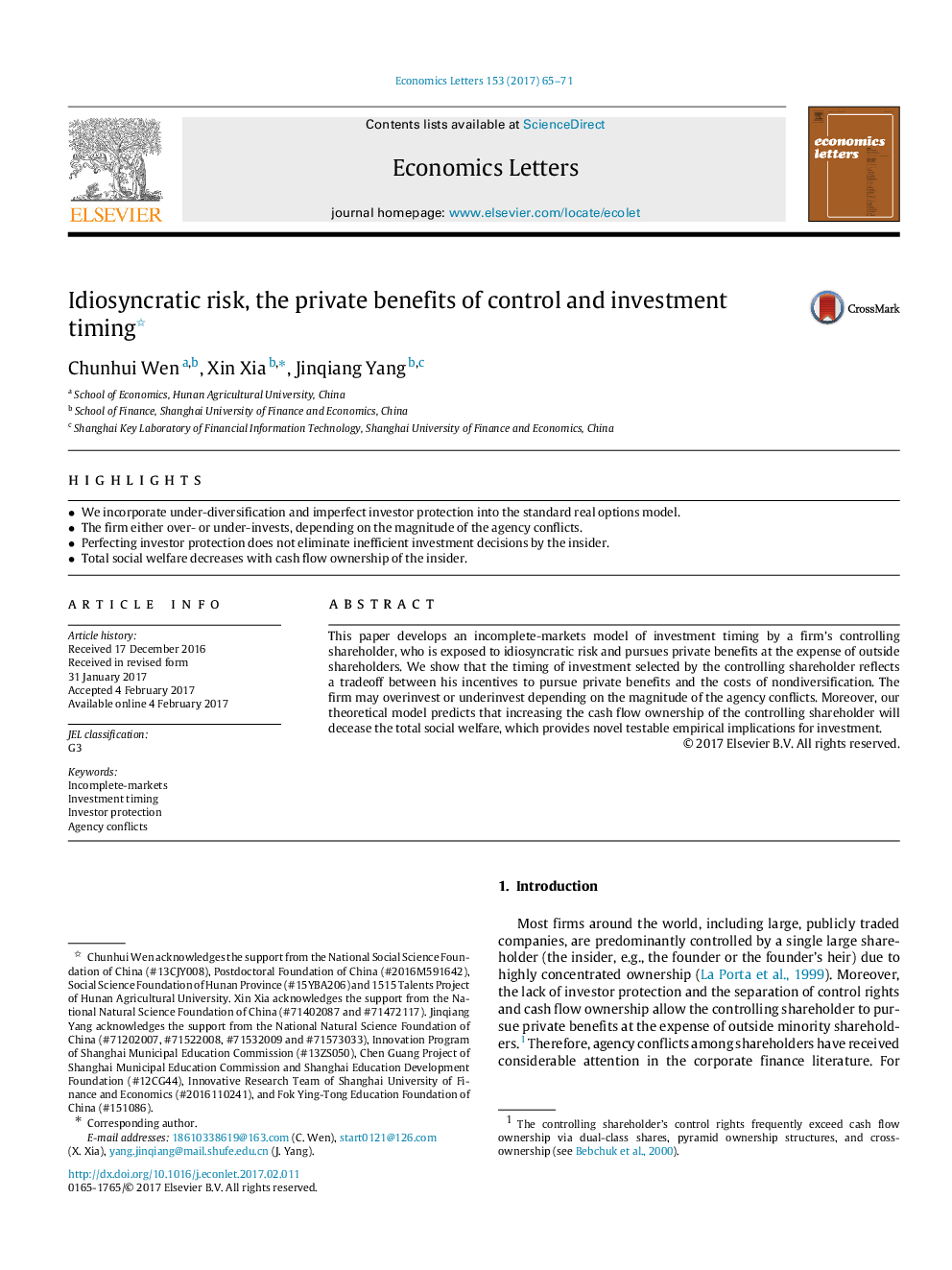| Article ID | Journal | Published Year | Pages | File Type |
|---|---|---|---|---|
| 5057725 | Economics Letters | 2017 | 7 Pages |
â¢We incorporate under-diversification and imperfect investor protection into the standard real options model.â¢The firm either over- or under-invests, depending on the magnitude of the agency conflicts.â¢Perfecting investor protection does not eliminate inefficient investment decisions by the insider.â¢Total social welfare decreases with cash flow ownership of the insider.
This paper develops an incomplete-markets model of investment timing by a firm's controlling shareholder, who is exposed to idiosyncratic risk and pursues private benefits at the expense of outside shareholders. We show that the timing of investment selected by the controlling shareholder reflects a tradeoff between his incentives to pursue private benefits and the costs of nondiversification. The firm may overinvest or underinvest depending on the magnitude of the agency conflicts. Moreover, our theoretical model predicts that increasing the cash flow ownership of the controlling shareholder will decease the total social welfare, which provides novel testable empirical implications for investment.
